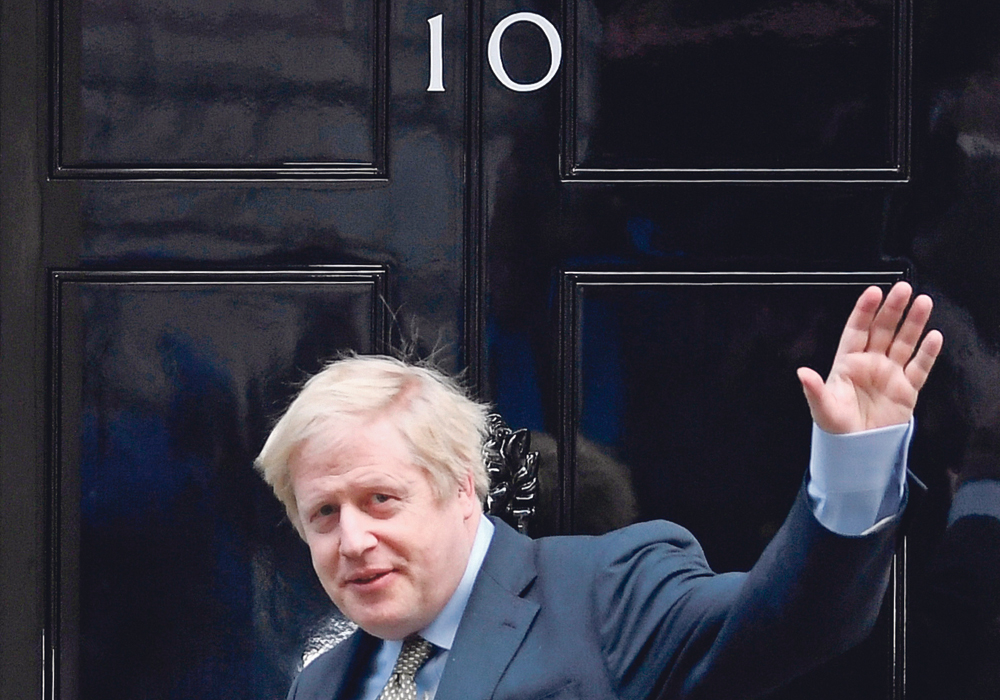The world’s economy should experience better times in 2020 than 2019, say some major market prognosticators.
It won’t be a boom, but relief from recent worries should let the globe’s economy keep growing, they guess.
“Now, with trade tensions and monetary policy easing concurrently, we think the macroeconomy can continue to make forward progress,” writes investment bank Morgan Stanley in its 2020 global economic outlook.
Fellow investment banking giant Goldman Sachs also has what it describes as a “relatively optimistic view” on the world’s economy for 2020. Growth should be limited by numerous factors, but the lessening of a set of fears that frightened markets in 2018 and 2019 should allow for better times in 2020.
Read Also

Crop estimates show mixed results
Model-based estimates used by Statistics Canada showed the 2025/26 crop year has seen increases in canola, corn for grain, oats and lentils production while seeing dips in spring wheat, durum wheat, soybeans and barley in comparison to 2024/25.
“Together, the U.S.-China détente and reduced Brexit uncertainty are likely to help global trade volumes recover,” says Goldman Sachs in its A Break in the Clouds report.
The announcement of a “Phase One” trade agreement between the two economic giants has lifted much of the fears that had been stoked by the worsening U.S.-China trade war, which was not just handicapping those economies but also spilling over into secondary economies like Canada’s and across the world to emerging markets that supply the giants.
Similarly, the re-election of Britain’s Conservative government with a majority and a leader determined to bring about that country’s orderly departure from the European Union has removed some clouds from the world’s economic skies, a number of forecasters are saying. The anxiety over a possible “no-deal” Brexit is lifting.
“Uncertainty over the U.K.’s exit from the European Union has played no small role in dampening growth (in 2019),” says Morgan Stanley.
“With a resolution on the horizon, the economy could soon accelerate above trend.”
The lightening mood over the previously worsening trade tensions around the planet is combined with continued optimism that the low interest rates introduced around the world in 2019 won’t go away any time soon.
Increasing interest rates in mid-2018 did much to cause the market swoon and widespread recession fears of late 2018, inspiring a market slump. Those worries carried into 2019 but were alleviated when central banks cut interest rates in response.
Central bankers seem to have learned their lesson from their attempt to raise rates and will probably stick with an “accommodative” policy, which should allow economic growth to continue regardless of general weakness.
That’s why Barclays Bank thinks a “mini-bubble melt-up scenario” could come into play, as long as the trade tension relaxation and permissive monetary policy continue. Barclays predicts only moderate economic growth and market gains for 2020, with most of the stock market gains from the interest rate easing having already occurred in 2019, but the direction should still be positive.
“We see that the range of market returns during soft patches is still generally consistently positive two years after the start of the fed easing cycle,” said Barclays chief U.S. equity strategist Maneesh Deshpande in a 2020 outlook interview with news organization CNBC.
That’s because the easier interest rates allow economic growth to be rekindled, and that appears to have happened.
“The manufacturing slowdown sweeping across the globe appears to be stabilizing and fears of a spill-over into the services part of the economies have somewhat abated,” said Deshpande.
“As a result, the recessionary concerns priced into equity markets seem to be receding rapidly.”
None of the big forecasters is predicting an economic “boom,” but restrained growth is a more optimistic outlook than many forecasters held at this time last year.
Still, the optimism could be dashed by a reversal of the expectations on interest rates, trade tensions or unexpected events.
The U.S.-China trade situation improvement could reverse; Brexit could go bad; economic struggles could get worse rather than better; the U.S. elections in November could cause unanticipated developments.
Things didn’t go as most people expected in 2018, and 2019 was far different from what most predicted.
Surprises could also be in store for 2020. However, at this point most major investment banks and forecasters see the coming year as one of continued economic growth and moderate market gains.
After 10 years of “recovery” and growth following the financial crisis, a recession is coming closer, but isn’t here yet.
“We still expect the swing in the pendulum to remain quite gradual and the global economy to clock yet another year of progress,” says Goldman Sachs.
















